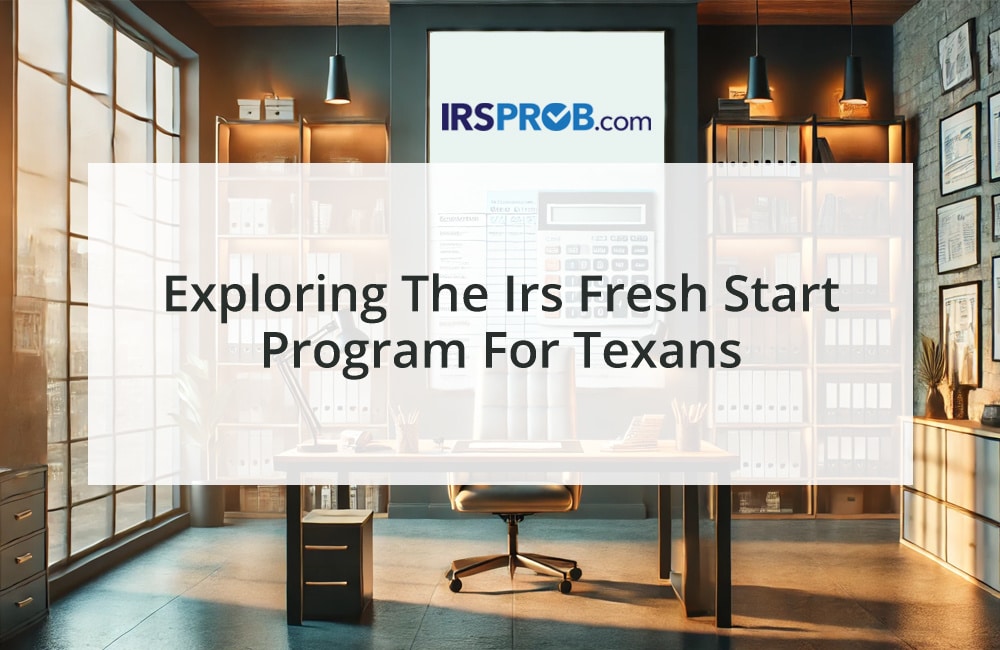Understanding Federal Tax Liens in Texas: An Essential Overview
The concept of federal tax liens in Texas can be both complex and intimidating for many taxpayers. This guide unpacks the fundamentals, providing a step‑by‑step explanation of what federal tax liens are, how they come into existence, and the profound effect they can have on both personal and business finances. In essence, a federal tax lien is a legal claim the government has on your property when you fail to pay a tax debt. In Texas, as in other states, this lien attaches to all your assets, from real estate to personal property, complicating efforts to secure credit or sell property.
This section serves as the cornerstone for understanding federal tax liens texas guide. It outlines the basic definitions, provides historical context, and explains the significance of these liens in maintaining the integrity of the federal tax system. It is imperative for taxpayers in Texas to understand these concepts, as failure to address a federal tax lien can result in significant legal and financial consequences.
Federal tax liens are invoked when taxpayers default on their tax obligations, and while they serve as a powerful tool for ensuring compliance, they also create lasting marks on credit records. This dual nature of protection and penalty further complicates the taxpayer’s journey towards financial stability. Therefore, understanding the origins and the mechanics behind these liens is the first critical step for any Texas taxpayer navigating issues related to federal tax debts.
The Federal Tax Lien Filing Process in Texas
The filing process for federal tax liens in Texas is a structured and legal procedure initiated by the Internal Revenue Service (IRS). This section of our federal tax liens texas guide dives into the details of how the IRS files liens, ensuring that taxpayers clearly understand each step. The IRS begins by sending a Notice and Demand for Payment to the taxpayer, which outlines the amount owed and the deadline for payment. Failure to comply results in the IRS filing a Notice of Federal Tax Lien, which then publicly announces the IRS’s legal claim on your assets.
The procedural timeline is crucial – from the initiation of the lien to its eventual resolution. The lien attaches to the taxpayer’s property as a matter of public record, making it visible to lenders and affecting overall creditworthiness. Detailed record‑keeping and prompt responses are essential in navigating this process. While the filing is driven by statutory requirements, taxpayers have the right to request a withdrawal or subordination of the lien if they can prove that it is causing undue harm or if the lien itself is erroneous.
Moreover, the filing process is unique in Texas, partly due to state-specific administrative practices and court procedures. The interplay between federal and state laws demands that Texas taxpayers carefully coordinate their responses with experienced legal counsel and tax professionals who understand local nuances. This strategic approach can often expedite the resolution process and minimize the collateral damage to personal and business finances.
The Impact of Federal Tax Liens on Assets and Credit
An unresolved federal tax lien can have far‑reaching effects on both assets and credit history. This section details how such liens affect various facets of one’s financial profile. When the IRS files a lien, it becomes part of the public record, which can deter prospective lenders and investors. The presence of a lien significantly lowers the credit score and hampers opportunities for new loans, mortgages, or even refinancing options.
For property owners, specifically in Texas, a federal tax lien can delay the sale or transfer of real estate. The lien is legally attached to the property, and potential buyers or lenders will be cautious when they see an outstanding tax issue. This complication not only devalues the property but also creates an ongoing legal impediment that may require additional resources and legal battles to clear.
Additionally, the impact on personal credit can be profound. Credit bureaus incorporate the information of the lien into your score, and rectifying this issue even after resolution takes considerable time. Taxpayers may also face difficulties in obtaining financing for future projects or investments, as the lien signals financial instability to creditors. Understanding these ramifications is critical for devising effective strategies to manage and eventually resolve the lien.
Strategies for Resolving and Managing Federal Tax Liens in Texas
Resolving a federal tax lien is crucial for restoring financial health and regaining access to credit markets. Texas taxpayers have several options for managing these liens, each with its own set of requirements and implications. One common approach is to negotiate an installment agreement with the IRS, allowing taxpayers to settle their debt over time while gradually lifting the lien. This method is particularly beneficial for those who lack the means to pay the full amount in one lump sum.
For taxpayers facing an undue lien or who believe there has been an error, filing an appeal or requesting a lien withdrawal is viable. The IRS occasionally retracts liens if it is demonstrated that the lien causes undue hardship or if the amount owed is disputed. Seeking legal counsel to formally challenge the lien can be an effective strategy, especially if the taxpayer can provide substantial evidence that the lien is not justified.
Another effective strategy is to consider lien subordination. This process involves the IRS allowing other creditors to be prioritized, which can help free up avenues for obtaining new financing. Additionally, taxpayers are encouraged to actively engage with professional tax advisors who are well-versed in Texas-specific procedures, as their guidance can often lead to a quicker and more favorable resolution. Importantly, proactive management through early intervention is always the best defense against the complications that come with a federal tax lien.
Legal Considerations and Regulatory Oversight in Texas
Understanding the legal framework and regulatory oversight of federal tax liens in Texas is essential for taxpayers facing these issues. The IRS operates under federal laws, yet the impact and enforcement of liens intersect with state laws and regulations unique to Texas. This dual-layer of governance means that any resolution strategy must account for both federal statutes and Texas-specific legal practices.
Federal tax liens are governed by the Internal Revenue Code, which lays down the legal groundwork for the lien process, including taxpayer rights and the IRS’s authority. In Texas, additional oversight comes into play through local courts and administrative offices that manage public records related to property ownership. This local dimension means that taxpayers must engage with both federal and state entities if they wish to clear a lien.
Moreover, regulatory changes are not uncommon, and keeping up‑to‑date with the latest policies is critical. Changes in tax law, court rulings, or new IRS guidelines can significantly affect the resolution of a lien. Therefore, continuous monitoring and consultation with legal experts can help ensure that taxpayers in Texas are not caught off guard by sudden legislative or procedural changes.
Preventative Measures: Avoiding Future Liens
Prevention remains the most effective strategy in avoiding the complications of federal tax liens. For homeowners and business owners in Texas, staying proactive about your tax obligations is critical. Ensuring timely filing of returns, maintaining accurate records, and making regular payments can dramatically reduce the risk of incurring a lien. This section of the federal tax liens texas guide focuses on establishing sustainable financial practices that safeguard against potential IRS actions.
To prevent future liens, taxpayers are encouraged to work closely with tax professionals who specialize in IRS procedures and Texas regulations. These professionals can offer predictive insights and pre‑emptive solutions before problems arise. Additionally, setting up an emergency fund dedicated to tax payments and regularly auditing your financial status can help mitigate the risk of unexpected liabilities.
Another preventative measure is the use of technology and digital tools. Financial software and platforms provide reminders, accurate record‑keeping, and quick access to critical tax documents. These resources ensure that you are always prepared for tax deadlines and can avoid the pitfalls of oversight or procrastination. Overall, preventing a federal tax lien is about establishing disciplined financial habits and seeking the right expertise when needed.
Navigating Federal Tax Liens with IRS Prob’s Expert Guidance
IRS Prob is at the forefront of providing expert guidance for managing and resolving federal tax liens in Texas. This section of our guide emphasizes the importance of leveraging professional expertise when dealing with the multifaceted challenges of federal tax liens. As experienced professionals in tax resolution and compliance, IRS Prob offers tailored solutions that address individual circumstances with precision and clarity.
Our comprehensive approach begins with a detailed assessment of your current tax situation. By analyzing your records, identifying potential liabilities, and evaluating the extent of any liens, we provide customized strategies designed to resolve the issues efficiently. This strategic approach not only aims to lift the lien but also to restore your financial integrity and creditworthiness over time.
In addition to taking a personalized approach, IRS Prob’s extensive network of legal and financial advisors ensures that all aspects of the resolution process are covered. We keep abreast of changes in federal and Texas tax laws and utilize our expertise to negotiate with the IRS on behalf of our clients. This all‑inclusive method is at the heart of IRS Prob’s commitment to protecting the interests of taxpayers across Texas.
Frequently Asked Questions about Federal Tax Liens Texas Guide
Pro Tips from IRS Prob
Pro Tip #1: Act Early and Stay Informed
One of the most effective strategies in dealing with federal tax liens is early intervention. Stay updated with IRS notices and ensure you understand every detail in your tax communications. Early action can provide more options for resolving discrepancies, negotiating payment plans, or even contesting erroneous liens. Leverage trusted financial software and maintain close communication with tax professionals to avoid surprises.
Pro Tip #2: Maintain Thorough Documentation
Proper record‑keeping is key to preventing and resolving federal tax liens. Maintain detailed records of all tax filings, correspondence with the IRS, and financial transactions. This comprehensive documentation not only supports your case if disputes arise but also instills confidence during negotiations. Accurate records are your strongest asset in proving compliance and mitigating the impact of potential errors by the IRS.
Pro Tip #3: Seek Professional Guidance
Federal tax liens can be complex, and navigating through the filing process, negotiations, and compliance demands a level of expertise that professionals offer. Rely on specialized tax advisors and legal counsel familiar with Texas regulations to create customized strategies for your unique situation. IRS Prob’s experts ensure you’re informed and well‑positioned to take swift action, thereby safeguarding your financial future.
In conclusion, understanding federal tax liens in Texas is vital for any taxpayer aiming to manage their financial obligations effectively and mitigate potential risks. This comprehensive guide has walked you through the basics, the filing process, the significant impact on your credit and assets, and the various strategies available for resolution. Prevention and proactive management remain at the core of protecting yourself from future liabilities. With expert guidance from IRS Prob, navigating the complexities of the federal tax lien process becomes more manageable and less daunting.
By embracing early action, maintaining precise documentation, and seeking professional advice, you can confidently address these challenges head‑on. This federal tax liens texas guide serves as both a roadmap and a resource, ensuring that every taxpayer in Texas is well‑prepared to face these issues strategically. Remember, staying informed and proactive can turn a potentially overwhelming situation into a manageable challenge. Continue to explore additional resources and updates as tax laws evolve, securing your financial stability for the long term.
This extensive guide on understanding federal tax liens in Texas provides the in-depth knowledge required to navigate the intricate legal and financial landscape shaped by IRS regulations and state-specific practices. Whether you’re newly facing a lien or seeking to prevent future challenges, the detailed information and professional insights within this guide equip you with the strategies to confidently manage and resolve tax-related issues. With the support of IRS Prob and a disciplined approach to financial management, you’re on track to reclaim your financial freedom and build a resilient future.









